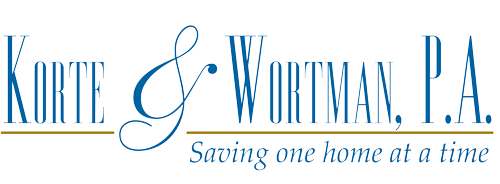There are many circumstances that may occur that can cause a property owner to get behind on his payments. Some of which include an illness or death in the family, loss of a job, adjustable rate loans, divorce, credit card debt, and gambling and substance abuse problems.
During the last few years, particularly at the depths of the mortgage crisis, that was the type of advice that seemed to be going around from loan experts and even some lenders. More recently, lenders have started singing a different tune.
According to Marcie Geffner at Bankrate.com “If you’ve been tempted to skip a few mortgage payments to try to convince your lender to modify your loan, you may want to resist that temptation. Whether your goal is to stave off foreclosure or just make your payments more affordable, experts say deliberate delinquency is not as smart an idea as it may seem.
The bottom line is that:
- If you can make your payment, you should do so.
- If you can’t, you shouldn’t.
- If you’re in between, you should get help to assess your situation.
“Back in the day, (lenders) would only provide modifications to people who were significantly behind because that evidenced that they truly needed the loan modified. They were of that mindset, and they didn’t realize the enormity of the problem,” says Gail Cunningham, a spokeswoman for the National Foundation for Credit Counseling in Silver Spring, Md. “But now, they’ve realized that the logic of making someone become delinquent and dig a deep financial hole before you help them was really not good for anyone.”
Loan modifications extended to nondelinquent borrowers
That new thinking can be seen on some, though by no means all, of the lenders’ Web sites, which have been updated to suggest, however subtly, that a late payment may no longer be a prerequisite to a loan modification. Here are two examples:
Chase’s Web site states: “If you are current on your mortgage, but have had (or are facing) a change in personal circumstances, such as an uncontrollable reduction in income or increase in payment that will create a financial hardship, and feel you are at risk of losing your home, your next step will be to determine if you may qualify for loan modification.”
Bank of America/Countrywide’s Web site states: “If you think you might fall behind on your payments or have already missed a payment, our specialists will work with you to determine your eligibility for one or more of these potential solutions: refinancing, extending the term of the loan, interest rate reductions, temporarily freezing monthly mortgage payments, extended repayment schedules (or) decreasing the principal balance of the loan.”
Christine Holevas, a spokeswoman for JPMorgan Chase in Chicago, declined to comment on whether homeowners should make a late payment to better their odds of a loan modification. But she reiterated the standard advice that you shouldn’t wait until you’ve missed a payment to contact your loan servicer. Instead, you should pick up the phone as soon as you believe you may be in danger of delinquency. “If you think you’re in trouble, contact your servicer. You do not have to be late. You do not have to have missed a payment. Contact your servicer so they will know and they can start the process,” she says.
Missed payments now often disqualify borrowers
The federal government’s new Making Home Affordable plan may be another reason why lenders have tweaked their policies with respect to delinquency and loan modifications. The new plan, which includes a loan modification program and a refinance program, offers lenders new incentives to participate.
The loan modification program is open to borrowers who have missed one or more payments, but a missed payment is not a requirement. In fact, the FAQs for this program state that “responsible borrowers who are struggling to remain current on their mortgage payments are eligible if they are at risk of imminent default.” Risk of default might involve a mortgage payment that has reset and is no longer affordable, a significant loss of income or other types of hardships.
Read more: http://www.bankrate.com/finance/mortgages/should-you-skip-your-mortgage-payment-1.aspx
Most people feel overwhelmed when they can’t make their mortgage payment. If you find yourself in this situation, then contact us at Korte & Wortman, P.A. To learn more about how we can help you with your foreclosure defense or give you the best advice if you are hoping to get a modification of your mortgage, please go to http://foreclosurefactor.com/practice-areas/mortgage-modification/.
Korte & Wortman, P.A. is a law firm specializing in all aspects of real estate law. In addition to using this blog as a helpful resource, please contact us directly if you have any questions or current legal issues in any type of real estate transaction. Our home office is based in West Palm Beach, at 2041 Vista Parkway, Suite 102. You can call us at (561) 544-7071, stop in to our office, email us at vdinapoli@kwlawfirm.com or come to our website at http://www.foreclosurefactor.com. Our firm represents clients throughout the state of Florida and across the eastern seaboard. We also have offices in Sunrise and Clearwater, Florida.
We look forward to helping you get the best settlement possible in all of your real estate transactions!
